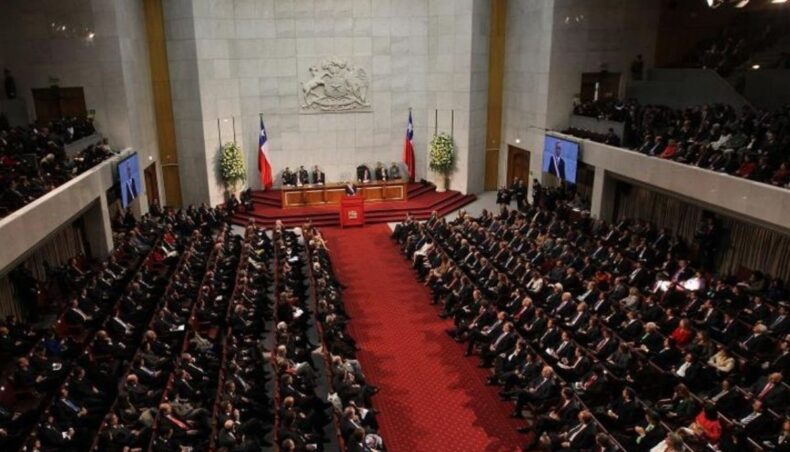Before it is made public, the assembly of Chile will provide the final document to president Gabriel Boric on Monday.
Gaspar Dominguez descended the grand former Congress building in Santiago’s downtown with haste into the glaring brilliance of the winter sun. The 33-year-old doctor has spent the last year working with a 154-person assembly to draught Chile’s new constitution in the structure, which is now a national monument.
He gave hugs and congratulations to his co-workers who had gathered outside; they had just finished writing the document that may alter the nation’s history and establish precedents for equal rights worldwide.
The constitution innovates on issues of equality, in addition to social rights, housing rights, and educational rights, Dominguez told media.
He talks about ensuring LGBTQ+ inclusion in political venues and equal participation quotas for women in public institutions.
Simply asserting that everyone is equal is insufficient; affirmative action must be taken, he continued.
Before it is made public, the assembly will deliver the final draught text to President Gabriel Boric on Monday. Chileans will have two months to evaluate the document before voting on its fate on September 4 in a required referendum.
Vice President of the Assembly Dominguez praised the constitution as a democratic victory and expressed confidence in the outcome, saying, “We’re extremely excited about it.”
Following the 2019 Chilean spring protests, where millions of people marched to the streets to demand social reform despite harsh governmental repression, calls for a new constitution began to surface.
Thousands of people were hurt and scores were killed, which stoked unrest and increased mistrust of political figures, particularly the conservative Pinera government that was in charge at the time.
‘Chained to Pinochet’
The existing constitution of the nation, which supported unchecked privatization and favored neoliberal policies, was singled out as the main contributor to the country’s astounding disparity and high cost of living.
Since the agreement was created in 1980 under the Pinochet dictatorship, protesters viewed it as invalid. A new charter was approved by a resounding 79 percent of Chileans in a vote that took place in October 2020.
Erika Gonzalez, who was freely distributing condensed, illustrated editions of the new text throughout Santiago’s central business district, declared, “We’ll still be shackled to Pinochet as long as we are governed by his constitution.”
Gonzalez participated actively in the socialist party during the Pinochet dictatorship, which lasted for 17 years and ended in 1990. Socialists were compelled to leave the nation or work covertly under Pinochet’s military administration. Many people were killed and tortured.
She cried as she remarked, “It’s time to put an end to Pinochet once and for all.”
She thinks that Chile can be transformed by the new constitution by guaranteeing equitable access to education in particular. “An educated nation is the most important to me,”
But not everyone is as enthusiastic about the text as she is. One onlooker aggressively flipped through the pages, saying, “It’s just a book with goofy graphics. One more yelled, “Reject it!” One hurried past while murmuring the term “lies!”
‘Conservatives to the end’
The right-wing in Chile vehemently opposed the notion of a new constitution and only managed to secure a small number of seats in the writing assembly, whose members were chosen by an electoral process in May 2021.
Ruggero Cozzi, a lawyer, and conservative voter said he thought the assembly had fallen short of its goal.
He told the media, “I hoped we’d achieve a document that would offer us unity and social cohesion, but we did not. It’s been a worthwhile, exhausting, but most importantly, disappointing year.
Cozzi defended the free market system that the constitution is destroying and asserted that Chile’s infrastructure is particularly robust when compared to other Latin American nations because of privatization.
He cautioned that trying to organize everything through the state would not bring about the necessary adjustments and had not gone well for other Latin American nations.
In the September referendum, Cozzi urges Chileans to vote against the constitution, and the odds are in his favor. According to the most recent polling results from Cadem, 51% of Chileans would oppose it.
Chile’s willingness to shed its conservative past and embrace radical social transformation was further reinforced by Boric’s triumph. Since taking office in March, Boric has backed the constitutional process and is agitating for the adoption of the new charter.













